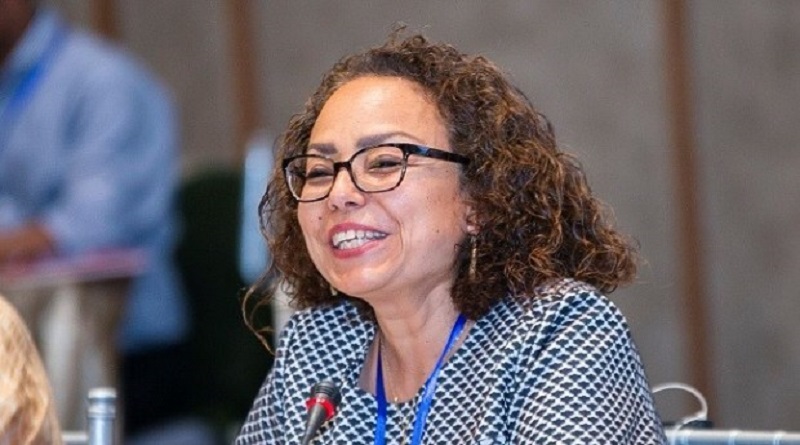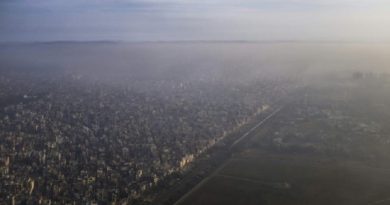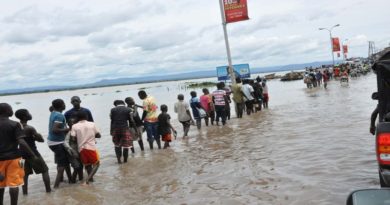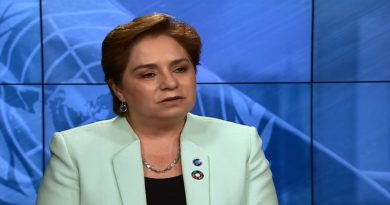Minamata Convention: SIP Board approves $2m projects for Nigeria, 9 others
The Governing Board of the Specific International Programme (SIP) of the Minamata Convention on Mercury on Friday 20th September 2019 approved ten projects amounting close to two million dollars for Nigeria, Ghana, Indonesia, Iran, Moldova, Peru, Sri Lanka, Zambia, Ecuador and Antigua and Barbuda.
Essentially, the successful projects were selected out of the twenty applications that were submitted. Each successful project sets out to support capacity-building and technical assistance in support of the implementation of their obligations under the Minamata Convention on Mercury.
Co-chairs of the Governing Board of the Specific International Programme, Sam Adu-Kum (Ghana), and Reggie Hernaus (The Netherlands), in a statement after the meeting held in Washington D.C., commended all the applicants, whether successful or not in the Second Round, for having prepared and submitted their applications.
The statement went further, “As Co-Chairs of the Governing Board of the Specific International Programme of the Minamata Convention on Mercury, we are very pleased to inform you that on Friday, 20 September 2019, the Board approved ten projects in the Second Round of the Programme amounting to close to two million dollars. Twenty applications had been submitted by Parties to the Second Round.
“The successful projects were submitted by Antigua and Barbuda, Ecuador, Ghana, Indonesia, Iran, Moldova, Nigeria, Peru, Sri Lanka and Zambia.
“On behalf of the Board, we would like to congratulate these applicants noting that each project successfully sets out to support capacity-building and technical assistance in support of the implementation of their obligations under the Minamata Convention on Mercury.
“As with the First Round in 2018, the Board noted again in 2019 the high interest expressed by Parties in the Specific International Programme. Twenty applications were made to the Second Round with applications received from all regions, including from least developed countries and from small island developing states.”
The Co-Chairs explained that “recognising the country needs expressed and the effort invested in the preparation of the applications, for applications that were not approved in this Second Round, the Board proposed a number of recommendations for the applicant to consider for submission to the Third Round. These recommendations will be sent by the Secretariat on behalf of the Board in due course.
“The Board would like to sincerely thank Austria, Denmark, Germany, the Netherlands, Norway, Switzerland, the United Kingdom, and the United States for their strong contributions to the Second Round of the Specific International Programme. The resource envelope available for the Second Round represented a doubling of funding, which allowed the Board to approve twice the number of projects in 2019 compared with 2018.
“Given the high interest shown in the Programme and the country needs expressed, we hope to be in a position to launch the Third Round soon and in this regard would like to encourage those in a position to do so to contribute to a robust next round of the Programme. The Board will present its full report to the Conference of the Parties at its third meeting in November 2019.
Ecogreen News gathered that the Federal Ministry of Environment on behalf of Nigeria developed and submitted a proposal on “Capacity Strengthening for Implementation of Minamata Convention on Mercury in Nigeria project” to the SIP secretariat in June 2019.
The Governing Board of the SIP approved Nigeria’s project on Friday 20 September 2019.
The project is building on the Minamata Convention Initial Assessment (MIA) undertaking in Nigeria (2015-2017) and will address some priority issues and recommendations identified with a focus on the development of National Strategy for Mercury Management, including specific sectoral action plans, establishment of Mercury Management Information System (MIS), sensitization and training for a wide range of institutional representatives on key issues that will enhance national capacity for the sound management of mercury and waste.




